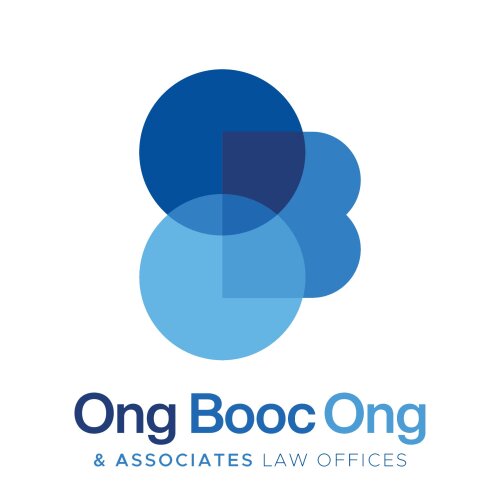Best Elder Abuse Law Lawyers in Cebu City
Share your needs with us, get contacted by law firms.
Free. Takes 2 min.
List of the best lawyers in Cebu City, Philippines
About Elder Abuse Law in Cebu City, Philippines
Elder abuse in Cebu City is a serious concern, reflecting broader issues faced throughout the Philippines. Elder abuse can manifest in various forms, including physical, emotional, financial, or even neglect. Legal measures in Cebu City aim to protect the elderly from such abuses and to provide avenues for redress. These laws are part of a broader national effort to safeguard the welfare and rights of senior citizens, rooted in both penal and civil codes, as well as specific acts like the Expanded Senior Citizens Act.
Why You May Need a Lawyer
Legal assistance may be necessary in several situations involving elder abuse. These include instances where an elderly person has suffered physical harm or emotional distress, situations involving financial exploitation by family members or caretakers, or scenarios where neglect by a caregiver is suspected. Engaging a lawyer can be crucial for navigating the local legal system, understanding rights, and ensuring that the necessary protective measures are in place for the elderly individual's well-being.
Local Laws Overview
In Cebu City, elder abuse cases are addressed under various legal frameworks, including the Revised Penal Code, the Anti-Violence Against Women and Their Children Act, and the Expanded Senior Citizens Act. These laws offer mechanisms to report abuse and seek justice for wrongdoings. Additionally, local government units are encouraged to set up facilities and programs to help safeguard elder rights and provide care. Understanding these laws and how they apply can be key in effectively addressing cases of elder abuse.
Frequently Asked Questions
1. What constitutes elder abuse in Cebu City?
Elder abuse in Cebu City can include physical assault, emotional cruelty, financial exploitation, neglect of basic needs, and any action that causes harm or distress to older individuals.
2. Who can report elder abuse?
Anyone who suspects elder abuse, including family members, neighbors, health professionals, or friends, can report it to the authorities.
3. What steps should be taken if elder abuse is suspected?
If elder abuse is suspected, it should be reported to the nearest police station or the Barangay for immediate action. It may also be beneficial to consult a lawyer specializing in elder law.
4. Are there government agencies that deal with elder abuse?
Yes, the Department of Social Welfare and Development (DSWD) and local government social welfare offices can provide assistance in elder abuse cases.
5. Can elder abuse cases be settled out of court?
While legal action is often necessary to ensure justice, some cases may be settled out of court through mediation or resolution, depending on the circumstances and parties involved.
6. How is financial abuse of the elderly handled?
Financial abuse is addressed by investigating the transactions and holding accountable those who improperly manage or exploit an elderly person's finances.
7. What protections exist for the elderly in nursing homes?
Elderly in nursing homes are protected under the same national and local laws, including regular inspections and monitoring by government agencies.
8. How can a lawyer help in elder abuse cases?
A lawyer can provide legal representation, help gather and present evidence, and navigate the legal processes involved in securing justice for the victim.
9. Are there legal penalties for elder abuse in Cebu City?
Yes, perpetrators of elder abuse can face criminal charges leading to fines and imprisonment, depending on the severity and nature of the abuse.
10. Can an elderly person file a case themselves?
Yes, if capable, an elderly person can file a case themselves, though it is often recommended to seek legal assistance to ensure the process is handled properly.
Additional Resources
Several resources can assist those dealing with elder abuse in Cebu City. The DSWD provides support services, while local government units offer counseling and intervention programs. Non-governmental organizations, such as those focusing on elder rights, can also offer guidance and support.
Next Steps
If you or someone you know is experiencing elder abuse, it is important to report the issue to the authorities immediately. Consulting with a lawyer specializing in elder law is recommended to navigate the complexities of the legal system and to ensure that justice is served. Legal aid services or the Public Attorney's Office can also provide support for those who may not afford private legal representation.
Lawzana helps you find the best lawyers and law firms in Cebu City through a curated and pre-screened list of qualified legal professionals. Our platform offers rankings and detailed profiles of attorneys and law firms, allowing you to compare based on practice areas, including Elder Abuse Law, experience, and client feedback.
Each profile includes a description of the firm's areas of practice, client reviews, team members and partners, year of establishment, spoken languages, office locations, contact information, social media presence, and any published articles or resources. Most firms on our platform speak English and are experienced in both local and international legal matters.
Get a quote from top-rated law firms in Cebu City, Philippines — quickly, securely, and without unnecessary hassle.
Disclaimer:
The information provided on this page is for general informational purposes only and does not constitute legal advice. While we strive to ensure the accuracy and relevance of the content, legal information may change over time, and interpretations of the law can vary. You should always consult with a qualified legal professional for advice specific to your situation.
We disclaim all liability for actions taken or not taken based on the content of this page. If you believe any information is incorrect or outdated, please contact us, and we will review and update it where appropriate.









